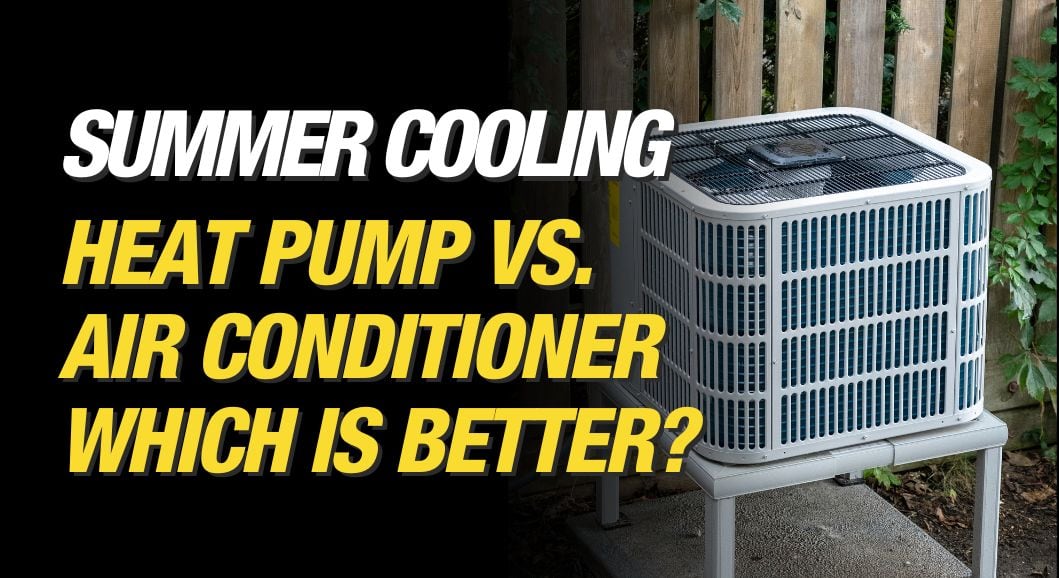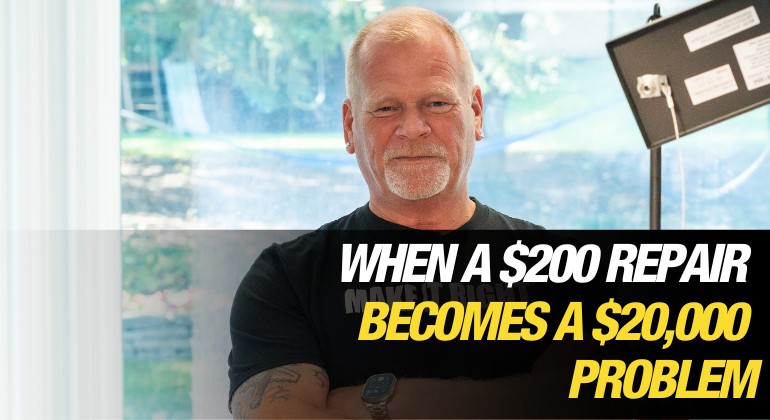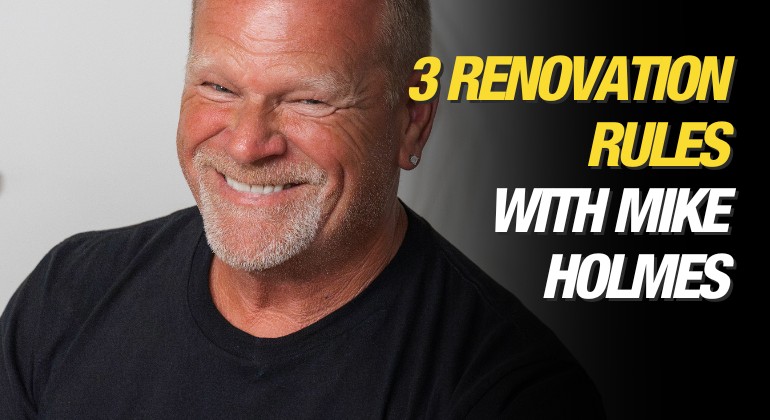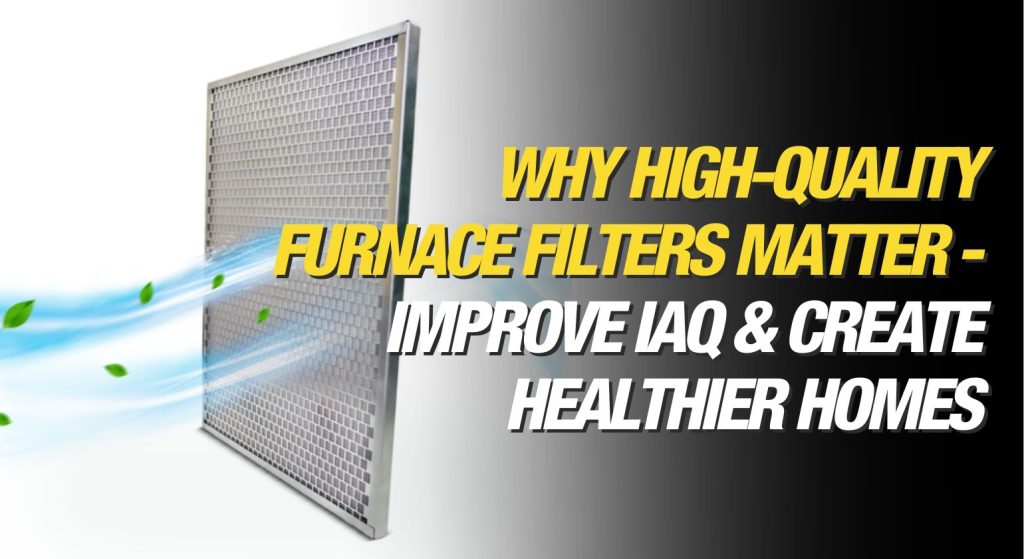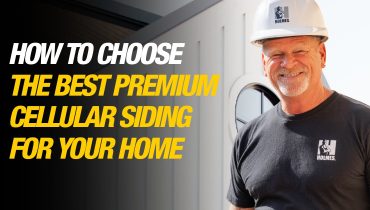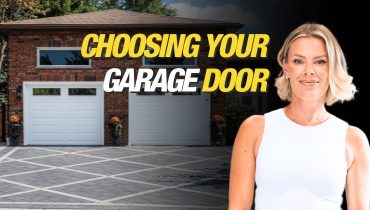When I walk into a bathroom renovation that’s gone wrong, I usually spot the red flags in bathroom renovations right away—even before I open up the walls. Bathrooms are...
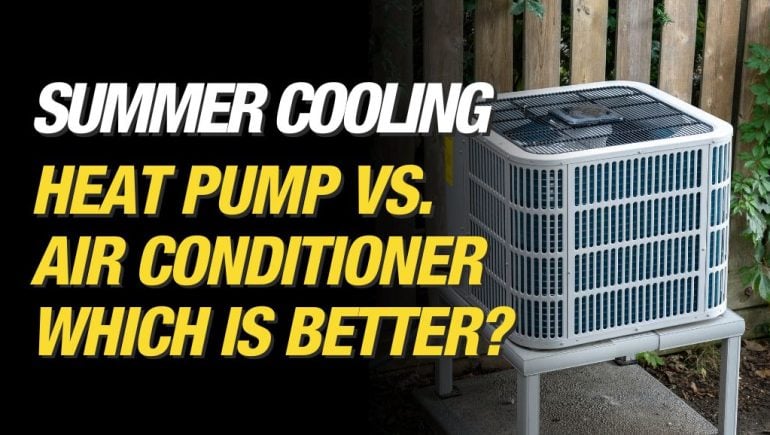
Heat Pump vs AC: Guide for Summer Cooling
By Mike Holmes
Mike’s Advice / Home Renovation
Monday, July 22nd, 2024 @ 3:36pm
Heat Pump vs Conventional AC (Air Conditioner): Which is Better for Cooling?
Summer is here and it’s bringing the heat. But I can’t complain because I love the summer weather, enjoying my backyard and taking out my boat. But it can sometimes get downright HOT and air conditioning (or even a heat pump to keep you cool) is a must. Many homeowners keep their homes cool with traditional central air conditioning units or small window units. However, did you know that heat pumps can heat your home during the winter months AND also help keep your house cool in the summer?
So if you’re in the market for a new cooling system, which solution is better for you —a heat pump or a traditional air conditioner? I spoke to the HVAC experts and here’s what I learnt.
Air Conditioners To Keep You Cool
Air conditioners offer a dependable solution, but with various options available, choosing the right one for your needs is key. There are central air conditioners, window air conditioners, portable air conditioners and mini-splits.
Window Units
Single window units are great as a quick, affordable cooling solution. However, they can only cool a small area. Plus they are cumbersome to move in and out of the window with the change of seasons. Plus, they can also be a security threat and aren’t very efficient.
Portable Air Conditioners
Portable air conditioners are just a different version of the traditional window units. They are self-contained portable systems ideal for cooling single rooms and typically sit on the floor and come with a tube that exhausts through a window. Most models also have wheels, so you can move them to different rooms, making them an excellent alternative to window units.
Central Air Conditioners (part of your HVAC system)
If you have a furnace and an AC, these units work until each room reaches the set temperature, and then they shut off. They will start up again when the room drops below the set temperature and will shut off again once that temperature is reached. The cycle will continue until the unit is switched off. This heating and cooling system uses more energy which means higher energy bills.
What are the issues with central air conditioners?
Just like with other mechanical systems in your home, maintenance is essential. Central air conditioners tend to have refrigerant leaks, maintenance issues, like dirty filters, compressors or fans, components wear over time, sensor issues and drainage problems.
What are the common issues with window air conditioners?
Window air conditioners must be maintained and often break down due to clogged or dirty air filters, a broken fan or motor, a blocked drain line or a refrigerant leak.
Can a Heat Pump Replace an Air Conditioner?
Yes, a heat pump can effectively replace an air conditioner. You need to compare the specific size, cooling features, and efficiency ratings to see if one performs better than another. However, both systems utilize outdoor units to transfer heat.
The one major difference is that, unlike traditional air conditioners, heat pumps can also operate in reverse to provide heating during colder months.
This dual functionality makes them versatile and energy-efficient while providing cooling and heating to your home. If you’re looking to upgrade your air conditioning system, a heat pump could be the perfect solution for year-round comfort.
READ MORE
Why Should You Consider A Heat Pump?
Heat pumps operate by transferring heat rather than generating it. Unlike traditional HVAC systems that alternate between heating and cooling, heat pumps maintain consistent room temperatures by adjusting compressor speeds. This results in lower energy consumption and reduced utility bills.
For homes without ductwork, mini-split heat pumps offer a cost-effective alternative, ideal for spaces like sunrooms or older homes with limited insulation.
READ MORE
Do you save money by installing a heat pump?
While installation costs may be a bit higher initially, in the end, your savings will generally outweigh the costs.
Yes, savings with a heat pump depend on factors such as energy prices, climate, and the efficiency of your current cooling & heating system. You also want to consider the insulation in your home, maintenance, and the size of the space being heated. However, in many cases, particularly in moderate climates, investing in a heat pump can result in long-term savings on heating and cooling costs.
Is a heat pump noisy?
I can’t say heat pumps don’t make noise, because they do. However, more manufacturers are coming out with ultra-quiet models that have a lower sound level rating.
We’ve been installing heat pumps on our projects and they have a sound rating as low as 56 decibels which means it’s so quiet that no more neighbours are yelling at you to turn it off.
What is the lifespan of a heat pump?
The lifespan of a heat pump can vary. However always purchase a unit that comes with a manufacturer’s warranty, as well as a service warranty.
Don’t forget to use a qualified, experienced, and manufacturer certified HVAC professional in your area! Your system is only as good as the installation, so it’s important to hire the right people for the job. Also, check if there are any taxes or rebates available in your area that can help you save on the initial costs.
RELATED
What is a mini-split?
The mini-split is really a modern window air conditioner, working on the same principle. The unit is “split” meaning – the evaporator is the inside unit and the condenser is the outside unit connected by refrigerator lines.
What happens if you don’t have any space for the condenser (or outside unit)?
I’ve worked on many urban homes, especially in the downtown core and you don’t have a lot of external space around the houses, especially if it’s semi. Typically, you’d have a driveway or alleyway and a small backyard – no place to put the condenser, right?
Mini-split systems are a great option for urban homes with limited outdoor space. Traditional central air conditioning requires a bulky outdoor condenser unit, which can be challenging to place in tight quarters like courtyards, small backyards, or near busy streets.
However, mini-split condensers are more compact than their central air counterparts. They can often be discreetly placed on a balcony, rooftop, or even a sidewall. Some models are even slimmer and can be mounted vertically to maximize space efficiency.
I’m sure you’ve seen many homes with a condenser unit. It’s that rectangular box, probably 2’ x 3’ sitting on a shelf or mounting bracket on the side of the house, they can even be mounted on the second and third floors. That’s a heat pump!
Where does the inside unit go?
The indoor unit (also called the evaporator) of a mini-split system offers flexible placement options, unlike traditional central air conditioning.
The most common placement for the inside unit is high up on the wall in a room. This ensures optimal airflow distribution.
We’ve installed mini-split heat pumps on our jobs and you can connect up to 5 indoor units to one outdoor unit. So you can have one in every room.
Sometimes it can be mounted on the outside wall close to the exterior unit but it can also be mounted on an inner wall especially if it’s near a closet. Ideal for hiding all the runs (the refrigerant lines, the water lines and the electrical lines) in the basement, for example.
Pro Tip: Remember to consult your HVAC professional for the best placement based on your specific room layout and desired comfort level. Also, make sure the chosen location meets the manufacturer’s recommended clearances for walls, ceilings, and furniture.
Can a heat pump effectively cool your home in the summertime?
Yes. Heat pumps remove extra heat from your house and “pump” it outdoors to keep things cool while it’s hot outside. However, as mentioned, heat pumps provide a two-in-one functionality compared to standard air conditioners since they can deliver warmth in the winter and cooling in the summer.
Not to mention, compared to traditional air conditioners, heat pumps offer a significant advantage in terms of energy efficiency. Air conditioners use electricity to generate cool air, while heat pumps simply move existing heat from one place (indoors) to another (outdoors). This heat transfer process requires less energy, leading to lower cooling costs.
RELATED
What do you need to know before buying a heat pump for your home?
Choosing the right heat pump involves more than just temperature control. Understanding factors like system size, home insulation, and local climate will ensure optimal comfort and energy efficiency, translating to long-term savings on your utility bills.
Here are some things to consider:
- Work with a licensed HVAC professional to ensure you purchase the right system for your needs
- A system that is too large or too small will not provide optimal functionality and will not be as efficient
- Consider the size and age of your home, the number of windows and doors, and the area you live in
- Ensure that your home is well-insulated
- Contact your local government for rebates and incentives as these can help off-set the initial investment
RELATED
What are the essential features to look for in a heat pump?
Investing in a heat pump is a smart move for year-round comfort, but maximizing its potential requires selecting the right features.
We’ve been installing heat pumps on many of our projects, and here are some features I think are great. If you’re in the market for a heat pump, consider checking these features out:
- Fully Modulating Inverter Drive:
- What it means: This feature adjusts the heat pump’s power to precisely match your heating or cooling needs. It ensures you get the right amount of comfort without wasting energy.
- Flexible System:
- What it means: The heat pump can work with both communicating and non-communicating systems, depending on your home or project’s requirements. This flexibility makes it easier to integrate into different setups.
- Accepts Utility Demand Response Events Directly:
- What it means: Your heat pump can respond to signals from your utility company to reduce energy usage during peak times, even without a special thermostat. This helps save energy and can lower your bills.
- Integrated with an App:
- What it means: You can control and monitor your heat pump remotely using your smartphone. The app makes it easy to adjust settings and check performance from anywhere.
- Remote and Onsite Monitoring and Energy Usage Feedback:
- What it means: You can keep track of how much energy your heat pump is using and make adjustments to improve efficiency, whether you’re at home or away.
- Demand Response Feature:
- What it means: The heat pump can automatically adjust its output based on energy demand from the utility company. This helps balance the power grid and can save you money.
- 10-Year Residential Limited Warranty:
- What it means: Some brands offer a long-term warranty, giving you peace of mind that your investment is protected.
RELATED
Guide to Heat Pump and Furnace Maintenance: Tips to Keep Your System Running Smoothly
Will I have hot or cool air when the power goes out?
No, unless you have a backup generator or an alternative power source. Heat pumps are powered by electricity.
What are the Potential Issues with Heat Pumps?
Heat pumps come in different capacities and are installed based on precise calculations. If a heat pump is too small for your house you may find that it doesn’t keep you comfortable. That’s why you must work with an experienced heating and cooling professional.
Also, a clogged air filter can cause the heat pump to struggle. People can neglect to change the filters regularly which affects the performance of the system. Filter maintenance is essential to optimal performance.
So Which Is A Better Solution To Keeping Your Home Cool —Heat Pump vs AC (Air Conditioner)?
That depends on your situation. However, both are excellent options.
If you get the right heat pump for your home, it can be very beneficial. A heat pump heats and cools your home and they are energy-efficient alternatives to furnace and air conditioning combinations.
Like everything we use, there are constant upgrades and advancements and the heat pump is no different. Most manufacturers, have made significant technological advancements so that heat pumps can perform in colder temperatures. That’s great news for homeowners who live in colder climates like us here in Canada.
Mini-Split is Great for Small Spaces, Older Homes, and Multi-Unit Homes
Mini-split heat pumps work great as a supplemental source for small spaces or homes where there is no ductwork – like a sunroom or an addition. I’ve added one to my new sunroom and it will help me get the most enjoyment out of the space.
They are also a great option in older or century homes as well. Installing mini-splits is less costly and more invasive than installing a ducted central system. Sizing may be more difficult than in newer construction because older homes have higher rates of air penetration and little to no insulation. However, working with your HVAC contractor can help you make the right choice for your home and needs.
In summary, several factors need to be considered before adding a heat pump to your heating and cooling design. However, with the right guidance and a knowledgeable HVAC technician you will find a model that suits your needs.
Disclaimer: I only recommend products I would use myself and all opinions expressed here are our own. This post may contain affiliate links.
READ MORE
How To Choose An HVAC System For Your Home
19 Biggest Home Renovation Mistakes to Avoid
How To Improve Ventilation In Your Home
How To Improve Your Home Insulation
Guide to Heat Pump and Furnace Maintenance: Tips to Keep Your System Running Smoothly
